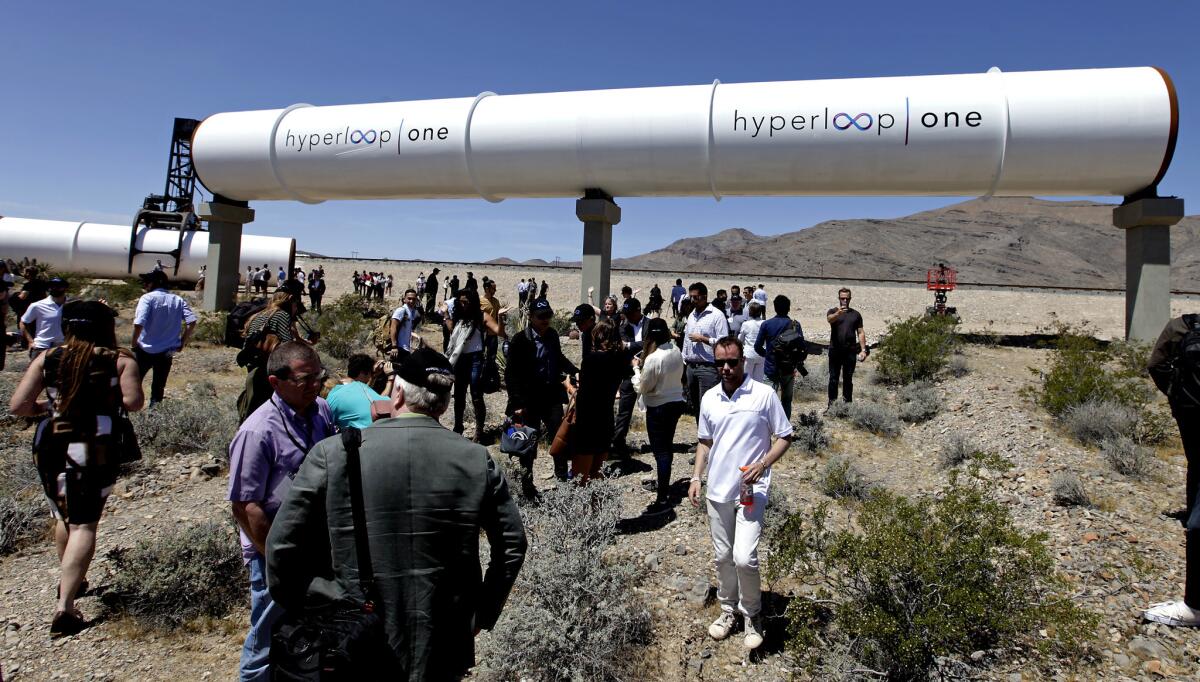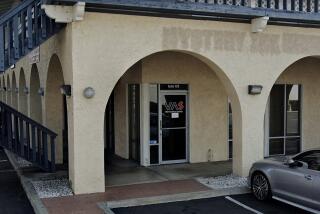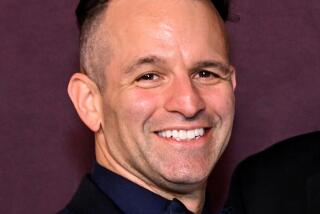Hyperloop One accuses ex-employees of secretly plotting a rival start-up

Hyperloop One hurled another missive Wednesday at four former employees involved in a legal battle over the direction of a start-up that has pledged to reinvent high-speed transit.
The accusations add further details to the companyâs countersuit against the employees it dubs the Gang of Four, who filed suit against Hyperloop One in July.
Former founding Chief Executive Brogan BamBrogan and three other top former executives were dead serious about forming a rival company and luring âdozensâ of employees from Hyperloop One, according to the amended cross-complaint filed in Los Angeles County Superior Court. They tried to âstealâ investors and held secret meetings in BamBroganâs garage to devise ways to circumvent their employersâ patents for transporting passengers through low-friction tubes at high speeds, the filing alleges.
âTodayâs filing sheds even more light on the attempted illegal coup by this Gang of Four, and demonstrates the extensive plans they took to form a competing company,â said Orin Snyder, attorney for Hyperloop One. Snyder vowed to âhold them responsible for their conspiracy and lies.â
Hyperloop One has accused BamBrogan, along with William Mulholland, vice president of finance; Knut Sauer, vice president of business development; and assistant general counsel David Pendergast of breach of contract, among other charges. The company seeks $250 million in damages.
The four left the Los Angeles firm amid an internal fight over corporate governance, financial control and direction at the start-up, previously known as Hyperloop Technologies Inc. They sued the company, accusing co-founder and venture capitalist Shervin Pishevar of nepotism, misuse of funds and placing ego and image over technological progress.
Justin T. Berger, attorney for the four, called the latest filing âa thinly veiled publicity stuntâ offering no new substance.
âTodayâs action is yet another spiteful effort to deflect attention from Hyperloop Oneâs wrongful acts, which include having its general counsel place a noose on the chair of Mr. BamBrogan in an effort to punish his leadership of a team of reformers who brought their complaints of improper action and violations of corporate governance to the board,â Berger said.
In the complaint, Pishevar, Chief Executive Rob Lloyd and investor Joe Lonsdale say the four ratcheted up their demands âto poison the possibility of a dealâ to satisfy their misgivings about the companyâs control and direction.
Before entering negotiations with the board, the complaint alleges, the four vowed to execute a ânuclear optionâ if they came out with anything short of majority control of the companyâs voting shares. Pishevar and Lonsdale control about 78% of the voting stock, according to the ex-employeesâ original lawsuit.
The so-called nuclear option was devised in the secrecy of BamBroganâs garage, where the four made plans to raise $2 million to $3 million, largely to pay for litigation; made a list on a whiteboard of employees they would âpoachâ from the company; and launched social and traditional media campaigns to âsmearâ Hyperloop One, the complaint alleges.
Several other allegations fall into a category of larceny, including taking company equipment with them after they quit â laptops, tablets and iPhones that Hyperloop One said contain âsensitive company data, documents and information.â That information was copied by the four, who refuse to return that content, the complaint adds.
The four have 30 days to respond to the filing.
Besides causing a bit of blushing in the venture capital and tech circles, the tit-for-tat has raised questions about whether start-ups, in their push for rapid growth, too readily jettison traditional corporate norms and governance.
Twitter: @LATgeoffmohan







